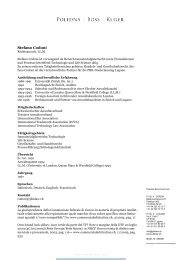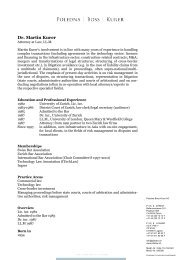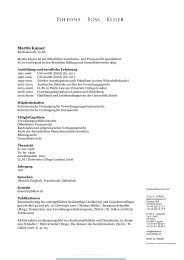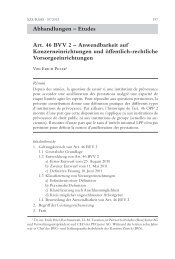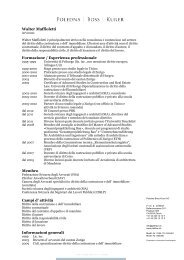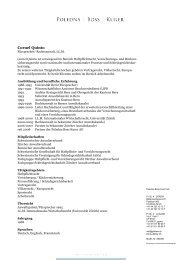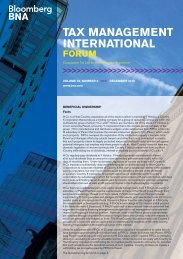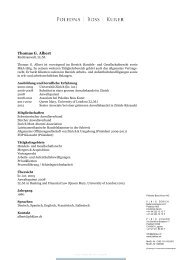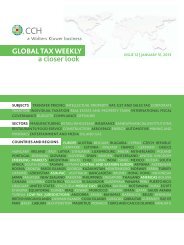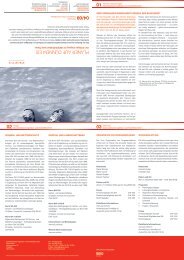721.8 kB - Poledna | Boss | Kurer
721.8 kB - Poledna | Boss | Kurer
721.8 kB - Poledna | Boss | Kurer
- No tags were found...
Create successful ePaper yourself
Turn your PDF publications into a flip-book with our unique Google optimized e-Paper software.
FEATURED ARTICLESISSUE 30 | JUNE 6, 2013Topical News Briefing:Dump Awayby the Global Tax Weekly Editorial TeamIt's very unfortunate that the experts who craftedthe WTO's rules designed in such a prominentrole for action against "dumping," that is the saleof goods by one country into another at an unfairlylow price. The rules might be called a protectionist'scharter, and there have been countlessinstances in all countries of an uncompetitive industry"capturing" the local government departmentconcerned, which then proceeds to imposesevere "anti-dumping" and "countervailing" dutieson imports from another country where productionis more efficient.The purist free-trader would say that protectinginefficient industries is contrary to the long-terminterest of the country that does it, and that even ifthere is dumping, it should be welcomed, becauseit means cheaper goods for consumers. There's notmuch chance of a "pure" free-trade regime in ourimperfect world; but just for a moment considerwhether dumping is actually very likely to takeplace. No company is likely to want to sell its waresat below cost price, i.e . at a loss, so dumping is onlylikely to take place with direct government support,as part of a deliberate campaign to damage competingindustries in other countries, or at least toprotect a domestic industry until it strong enoughto compete on its own legs. But government subsidiesto industry are specifically prohibited by WTOrules (see for instance the long-running Airbus/Boeing saga in which both sides accuse the other ofreceiving unfair government subsidies).So the conclusion has to be that so-called "antidumping"is almost always protectionist in nature,and we would all be better off without it. We arewitnessing a classic case of it at present focused onChina (see our news stories below).Both sides are to blame:fi rst, China imposed an anti-dumping duty of70.8 percent on a special type of steel importedfrom the EU. Now the arithmetic says that theEU must therefore have been selling the steel at58 percent of cost. That is a ridiculous proposition,especially given that China is a lower-costproducer than the EU. There certainly is no EUsubsidy given to steel production – heaven forbid– and it's simply impossible to believe thatthe EU producer is selling at a 42 percent loss.then, the EU is about to impose (on Wednesdaythis week) a ruinous anti-dumping dutyof between 40 percent and 68 percent on solarpanel imports from China. Similar logicapplies; and another point is that while suchduties may help the backward EU solar panelindustry, the effect will be to halt alternativeenergy production in its tracks, and the ruinationwill be for the downstream installationindustry, which is said to be larger than thepanel manufacturing sector.22



